Tips For House Training Your Puppy
One of the first things an owner thinks about after adopting a new puppy is house training. Knowing your puppy’s breed and temperament can make a world of difference. Different breeds have different needs, energy levels, and personalities. This means tailoring your house training approach to suit your specific puppy.
Positive reinforcement is the cornerstone of effective puppy training. Not only is it more humane, it’s also proven to yield better results. Reward your puppy immediately after they go in the correct spot. Treats, praise, and affection can go a long way in encouraging good behavior.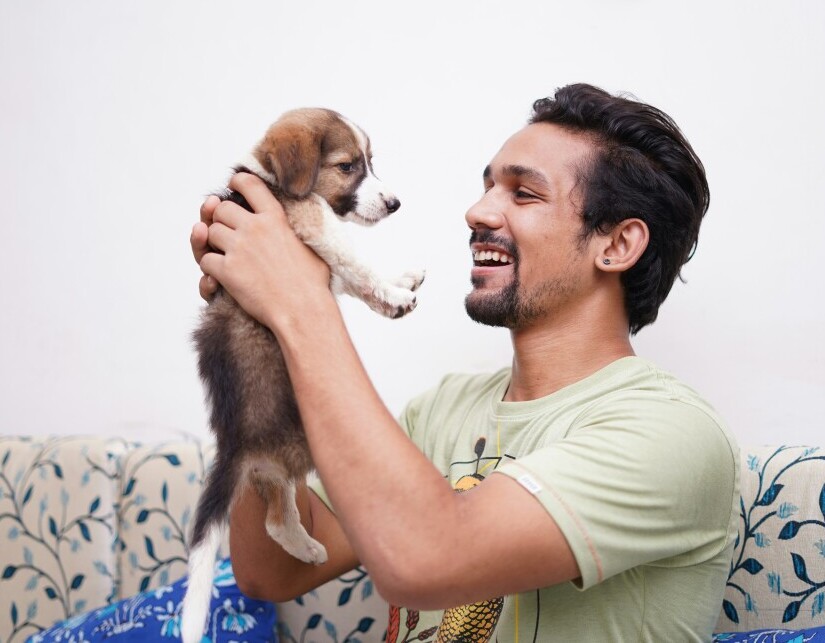
Realistic expectations are important as well. Puppies aren’t going to become perfectly potty trained overnight. It takes time, patience, and consistency. Expect accidents to happen, and remember that each puppy learns at their own pace.
Gathering the right supplies can set you up for success. Consider investing in a good quality crate, as crate training can assist with house training by teaching your puppy how to hold their bladder. Pee pads are also useful for indoor training. Don’t forget the treats, as they are essential for positive reinforcement.
Step-by-Step House Training Guide
The first key to successful potty training your puppy is to establish a consistent schedule. Feed your puppy at the same times each day and take them out shortly after their meals. Young puppies typically need to go out every two to three hours, so setting a timer can help you stay on track.
Choosing the right potty spot helps reinforce the habit. Always take your puppy to the same area outside. The familiar smell will remind them what they are supposed to do. Over time, they’ll associate that specific spot with going potty.
Until your puppy is house trained, you need to keep them crated unless you can keep an eye on them. Purchase a high quality crate that will fit your puppy when he is full grown. This will be your dog’s den as he matures. Once again, consistency is important in crating you pup. Make sure to take him outside as soon as you take him out of his crate, and put him back in the crate when you are not able to play with or watch him. The less chance for accidents, the easier it is for your puppy to learn.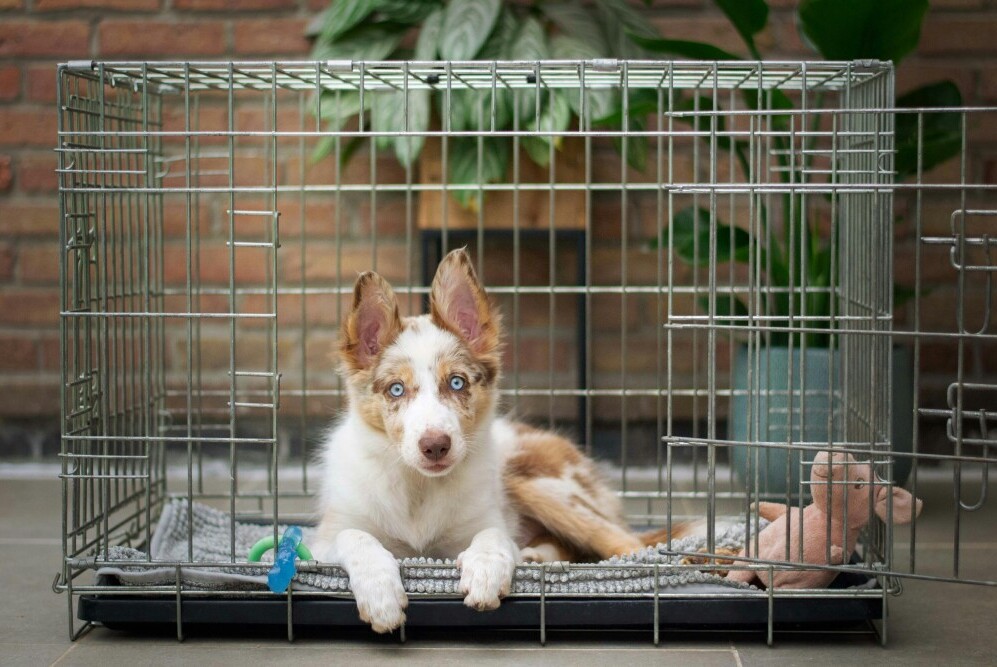
When you are watching or playing with him, recognizing when your puppy needs to go can prevent accidents. Puppies often sniff the ground, circle around, or become restless when they need to relieve themselves. Being attentive to these signs allows you to guide them to the appropriate spot in time.
Implementing a reward system is crucial for reinforcing good behavior. Keep small, tasty treats handy and praise your puppy right after they finish their business. This positive association helps your puppy understand that going potty outside is a good thing.
Handling accidents calmly and effectively is part of the process. If your puppy has an accident indoors, clean it up thoroughly to remove any lingering scent. Use an enzymatic cleaner to destroy the proteins and enzymes that make up the pheromones in dog pee. This will not only help to get rid of the dog urine smell, but it also decreases the chances of your dog being a repeat offender in that same spot.
Avoid scolding them after the fact, as they won’t connect the punishment with the accident. Instead, focus on what you want them to do moving forward.
Long-term Success and Troubleshooting
Maintaining a consistent routine is just as important in the long run. Continue with regular feeding and potty times to help reinforce the habit. Consistency is comforting for your puppy and it helps them understand what’s expected.
Gradually increasing freedom in the house can be done once your puppy shows reliability. Start by allowing access to new areas one at a time and supervise them closely. This way, your puppy learns to translate good potty habits to different parts of your home.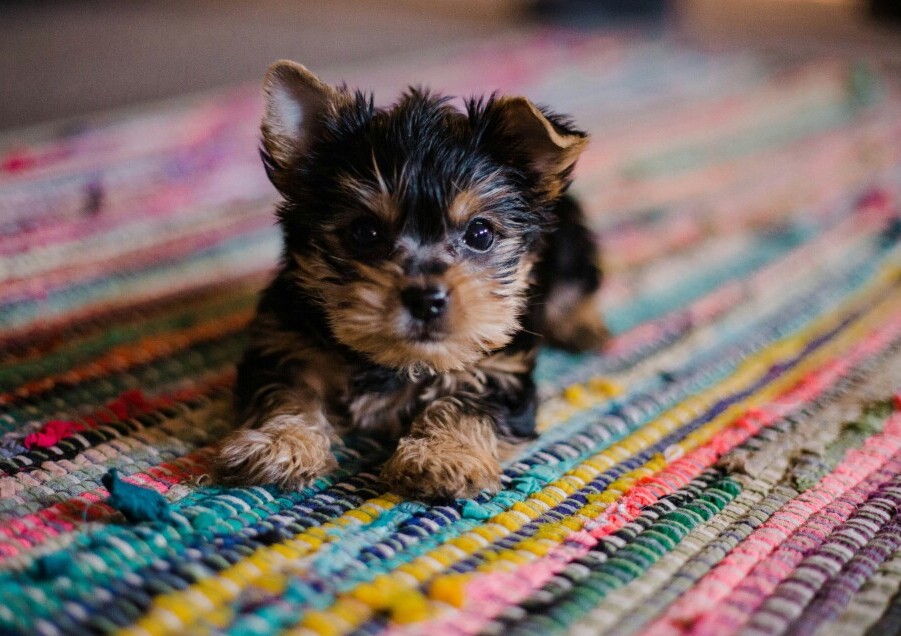
Common potty training challenges include regression, where a puppy seemingly forgets their training. When this happens, go back to the basics and reinforce your routines with patience and positivity.
Knowing when to seek professional help is essential. If your puppy continues to struggle with potty training despite your best efforts, consider consulting a professional dog trainer, or your veterinarian. Sometimes an expert’s insight can make a significant difference, and on occasion, there might be a medical reason that your puppy can’t control their bladder or bowels.
Encouraging ongoing good habits is a continuous process. Celebrate your puppy’s successes, address mistakes without frustration, and always provide the love and guidance they need. Being patient and consistent pays off, leading to a happy, well-trained dog, and a clean home.
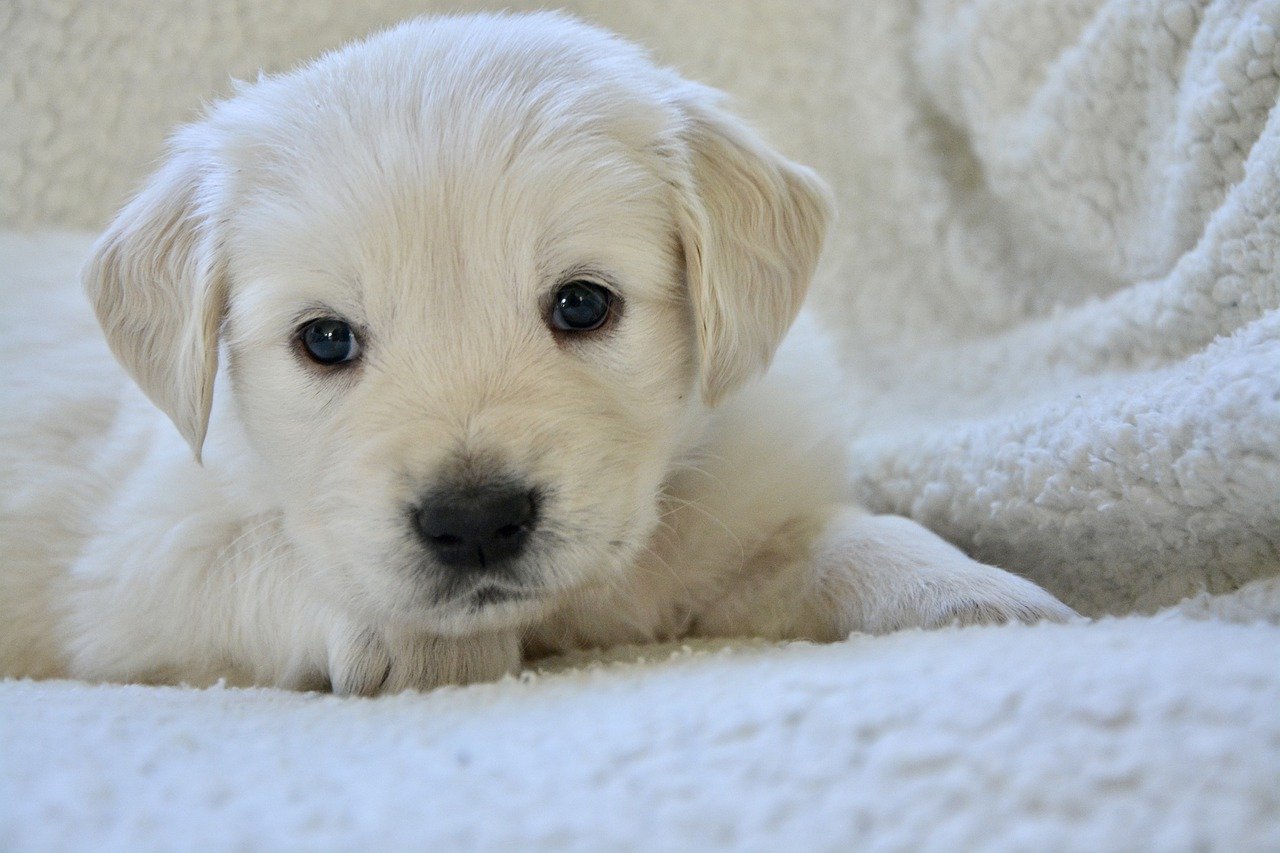
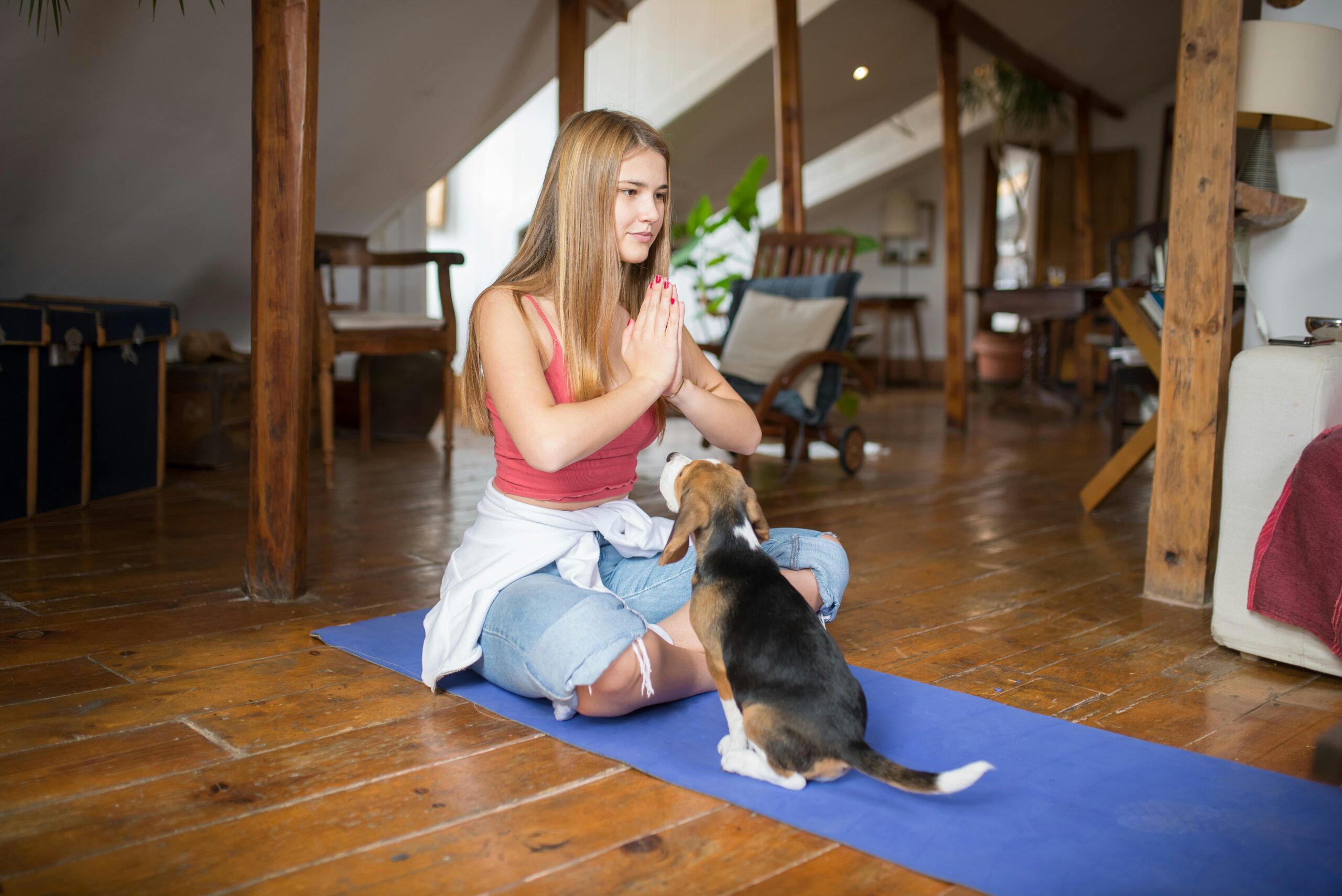
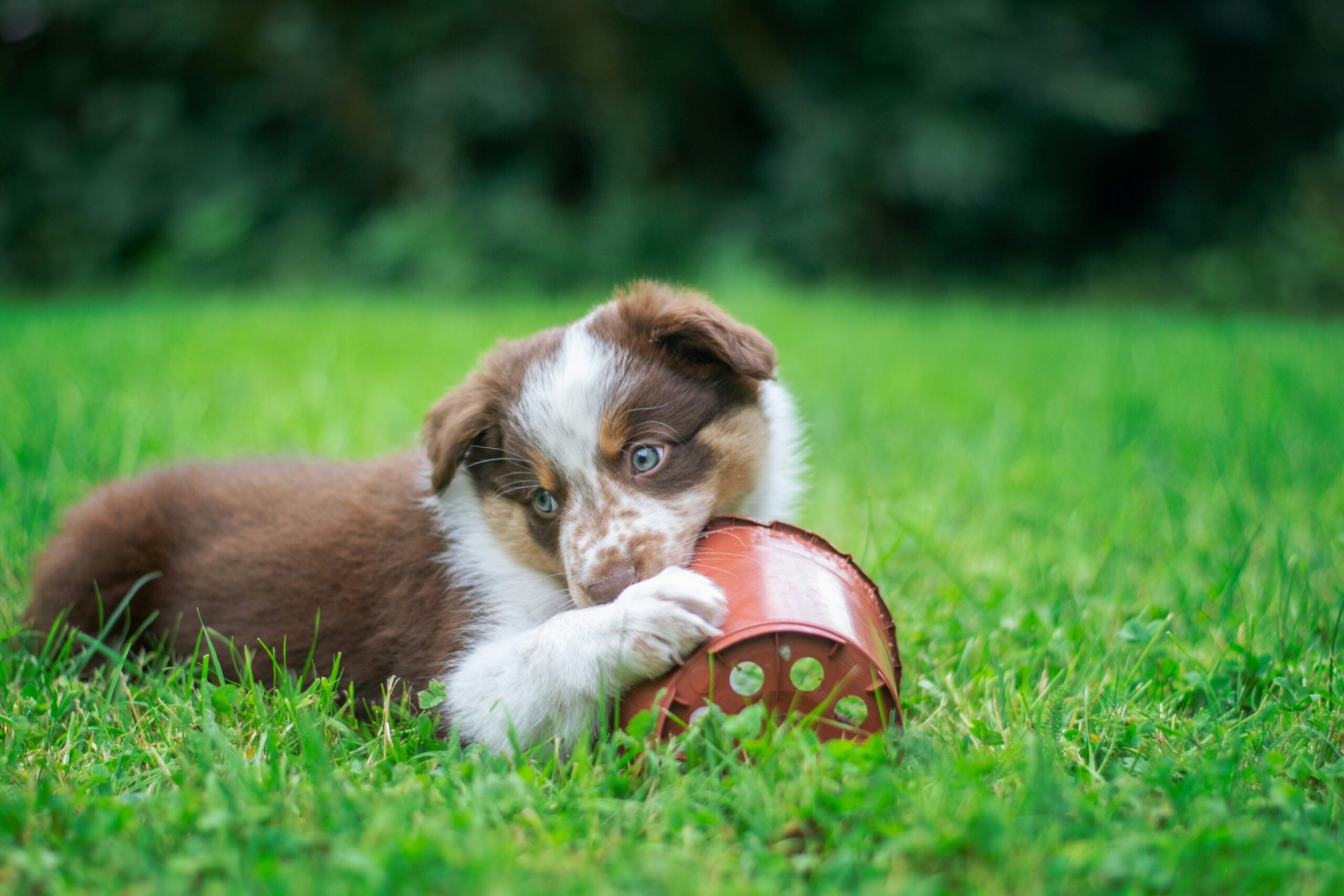
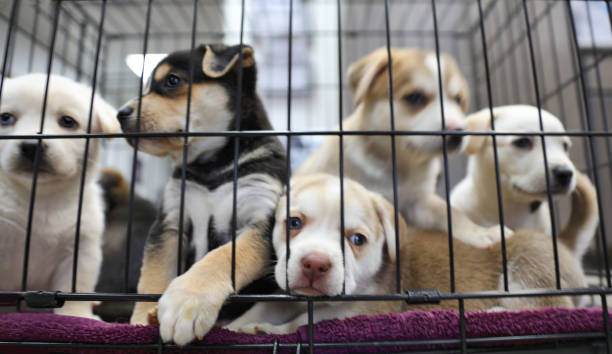
Post Comment